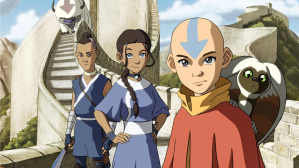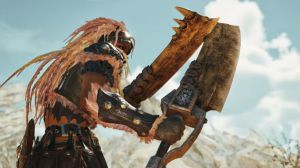
The Walking Dead #180 brings the series newest story, “New World Order,” to a close this week. While the past six issues have kept track of events with Rick and others in his community, the vast majority of pages have been devoted to introducing The Commonwealth. After years of foreshadowing, with Eugene speaking to a mysterious stranger on a radio and a long trek westward to meet this person, the people on the other side of those radio signals have finally been revealed. The result is one of the biggest shake ups in the history of the series as The Commonwealth is not simply another band of survivors or even small collection of groups; it is a minor city.
Videos by ComicBook.com
This revelation changes The Walking Dead forever. The size and scope of the story has consistently grown, but this is a giant leap compared to prior small steps. It is a change that could leave some fans understandably nervous, as it redefines the role of every single character from Rick Grimes and Michonne to the zombies themselves. However, “New World Order” was actually a necessary step forward and one that will allow the comics to thrive for many, many years to come.

The Story So Far
In order to understand how valuable this change is, it’s important to look at the past 180 issues of The Walking Dead and the patterns they have created. The series has always been labeled a zombie comic when it is, in fact, a survival comic. Zombies took center stage for the first couple of years, but Robert Kirkman and his collaborators quickly learned that they could not remain the driving momentum of the series. The most iconic villains have been individuals like The Governor and Negan, human beings that undermined the survival of small groups and ruined the best-laid plans. Even before The Governor emerged, minor characters, like serial killer Thomas Richards, were used to create a central conflict within the group.
Zombies moved from the primary threat to another fact of life, albeit an exceedingly dangerous one. Dealing with them, whether it was in the prison or Alexandria, was a chore like farming or building shelter. Survival was ultimately what was important. As zombies became more normalized, it became clear that the real threats to survival were other people.
Up to this point, the conflicts and battles with other people have all been essentially tribal in nature. Reflecting on the likes of The Governor and Negan, or even The Hunters, they all represented oppositional tribes. Their numbers were never higher than a couple hundred though. In this way, the survival that has been experienced by Rick and his people is more like the earliest settlements of hunters and gatherers, the very beginnings of civilization. While these groups offered opportunities for politics and some broader concerns to emerge, they remained essentially tribal in nature.

Everything Is New Again
This is the essential cycle that The Commonwealth breaks. It is not another opposing tribe where every individual has a distinct voice. It is a new society composed of almost 100,000 people. There is a clear system of government, a tiered culture defined by status and wealth, multiple locations of settlement, and even sports leagues. It is a paradigm shift, every bit as important as the first cities of mankind in places like Mesopotamia. If Kirkman and Adlard intended to mirror the construction of civilization, then they have reached the single most critical turning point.
The Commonwealth brings with it almost unlimited new storytelling potential. The pure number of characters make it impossible to chart the world of The Walking Dead through a wiki page anymore. In the past, several dozen people might go nameless, now tens of thousands will. Rather than dealing with leaders and followers, the story will have to engage with entire forces and messy coalitions within society.
The new settings are more than locales to be laid siege to as well. They each represent a number of possibilities. Some will likely be resource-based with characters engaged in mining, farming, fishing, and other essential operations. Others could be revealed as colonies, taking over land possessed by other survivors and either integrating or slaughtering them based on unknown criteria. Each of these facets contains a story and, as a result, a seemingly endless canvas for The Walking Dead to continue. It is a scale that even the massively successful television show could not hope to contain in its budget.

The Greatest Conflict of All
Yet the single most important element of “New World Order” is how it refocuses the essential question of the series. If The Walking Dead is about survival, then the largest and most complex form of that question occurs within an actual society. The struggles of two men or two tribes attempting to conquer one another are early and relatively small. Within The Commonwealth there are no two sides, there are simply all of the people who must live together in order to maintain their shared prosperity.
These problems have already become painfully apparent in “New World Order.” Pamela Milton, The Commonwealth’s leader, rules the society in an autocratic fashion, primarily relying on police power to enforce order. That order is built on a clearly structured class system, primarily based on survivor’s original roles in society. People are told who to be and what to do. The tension created by this form of rule are obvious with fear being a prime motivator for several new characters and corruption running rampant.
How do we create a true peace? How do we ensure prosperity for all people? How do we maintain security without sacrificing freedom? How do we live together? These are some of the most important questions to the survival of any society, whether it is our own or that of The Commonwealth. After almost 15 years of publication, The Walking Dead has arrived at its most important set of conflicts. These questions will drive the series going forward and ensure the series can remain relevant to readers today.









